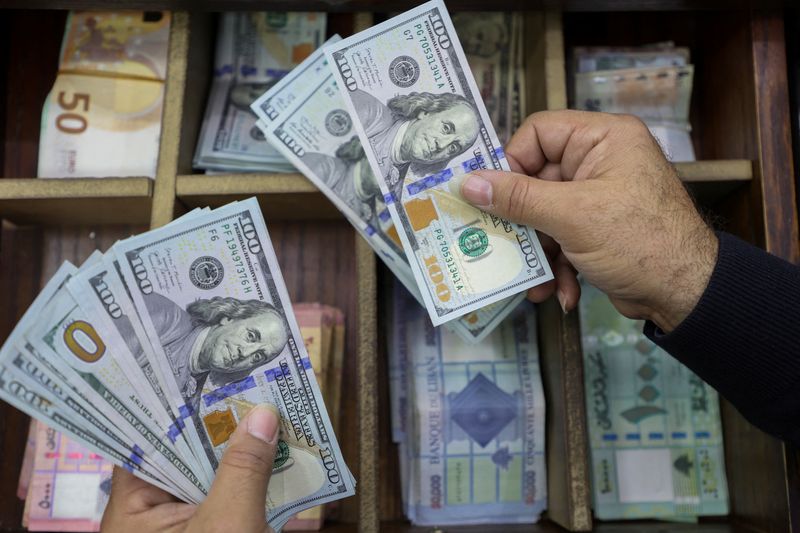[adrotate group="2"]
By Stefano Rebaudo
(Reuters) – The U.S. dollar continued its decline following remarks from U.S. President-elect Donald Trump, indicating that he would refrain from imposing tariffs on his inauguration day, which is scheduled for later in the session.
According to the Wall Street Journal, Trump is expected to release a general trade memorandum on Monday that stops short of implementing new tariffs on his first day in office. Market observers had anticipated the announcement of trade tariffs via executive order, a move that could have led to heightened expectations for a comprehensive campaign, increased inflation, and sustained high policy rates from the Federal Reserve. Due to the Martin Luther King Jr. Day holiday, trading volumes remained low. “Markets were pricing in some risk concerning an executive order on tariffs, which will not occur,” commented Francesco Pesole, forex strategist at ING, speaking about Trump’s remarks on tariffs. The dollar index, which gauges the U.S. currency against six others, fell by 1.01% to 108.21, having reached a 26-month high of 110.17 the previous week. Analysts at Goldman Sachs foresee a potential 5% upside for the dollar in their base case over the upcoming months but warned of near-term risks stemming from market expectations for prompt actions on tariffs. Since the presidential election in November, the dollar has appreciated by 4% as investors expect Trump’s policies to stimulate growth and inflation.
Investor focus remains sharply locked on the initial policies Trump will implement on his first day. During a rally on Sunday, Trump mentioned his intention to enforce strict immigration restrictions.
Some analysts speculate that Trump might invoke the International Emergency Economic Powers Act (IEEPA), a U.S. federal law that allows the president to regulate economic transactions in response to unusual and extraordinary threats.
In addition to tariffs, immigration policies and tax cuts will be pivotal issues under market scrutiny.
On the fiscal side, “we will be attentive to any mention of fiscal stimulus from President Trump,” noted Sjay Rajadhyaksha, research analyst at Barclays (LON:).
The euro rose by 1.2% to $1.0398, having hit a two-year low of $1.0177 last week amid tariff concerns.
At the same time, softer inflation data from the U.S. and the likelihood of multiple Federal Reserve rate cuts have recently encouraged risk assets, including cryptocurrencies, which peaked at a record high of $109,071.86 on Monday and were last up by 4.2% at $107,120.
Trump has claimed he will be a “crypto president” and is expected to issue executive orders aimed at facilitating the widespread adoption of digital assets.
Some analysts now worry that delays in the U.S. administration’s implementation of measures might lead to a “sell the news” reaction, disrupting the positive momentum in the markets.
The yen traded at 155.65 per dollar, appreciating by 0.42%, with the Bank of Japan expected to raise its policy interest rate this week unless there are market shocks on Trump’s inauguration.
Markets will be on the lookout for indications regarding the rate outlook, with money markets pricing in an 80% chance of a 25 basis-point increase and a 50 basis-point rise by the end of the year. [IRPR]
The yuan strengthened on Monday, reaching its highest level against the dollar since January 3, boosted by a positive conversation between Trump and Chinese President Xi Jinping on Friday, alongside better-than-expected fourth-quarter economic data.
The yuan hit 7.2777 per dollar, its highest since mid-December, marking an increase of 0.86%.
Despite expectations of substantial U.S. tariffs, the yuan has outperformed most of its peers since the U.S. elections, as the People’s Bank of China has continued to work towards maintaining currency stability.
On Friday, China’s central bank informed Reuters that it is confident in its ability to keep the yuan exchange rate “basically stable” at a “reasonable and balanced” level.
[adrotate group="2"]






